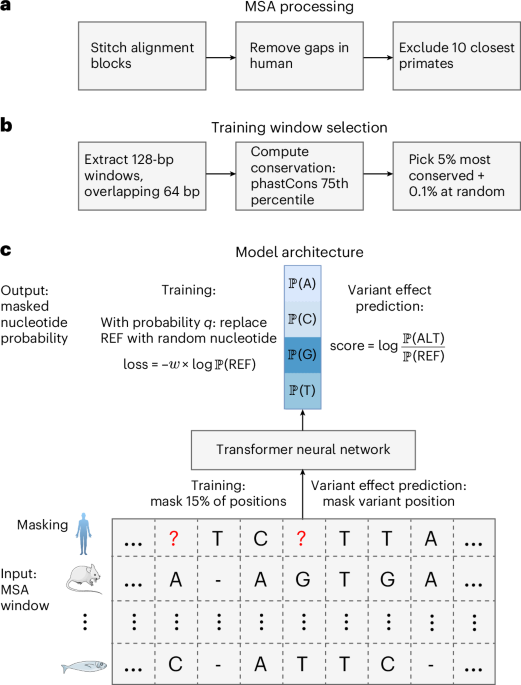GenusWave Named Finalist for Prestigious Responsible Fisheries Innovation Award

Technology tamfitronics
********* For Immediate Release**********
GenusWave Named Finalist for Prestigious Responsible Fisheries Innovation Award
ST ANDREWS, SCOTLAND – GenusWave, a pioneer in marine mammal deterrent technology, has been selected as a finalist for the Global Seafood Alliance’s Responsible Seafood Innovation Award in the Fisheries category. This recognition highlights the groundbreaking Targeted Acoustic Startle Technology (TAST) developed in collaboration with the University of St Andrews. TAST offers a revolutionary approach to reducing marine mammal interactions with human activities.
Innovative Solution to a Persistent Problem
GenusWave’s TAST utilizes short bursts of sound to trigger a startle reflex in specific marine mammal species, effectively keeping them away from fishing and aquaculture operations (Götz & Janik (2015; 2016). This technology addresses longstanding challenges in the industry, including:
- Reduction of bycatch and marine mammal interactions
- Increased catch rates and fishing time
- Decreased fish mortalities and predator induced stress in aquaculture operations
- Significantly decreased noise pollution compared to traditional acoustic deterrents
- Species-specific targeting, minimizing impact on non-target marine life
Proven Results
Field tests have demonstrated the remarkable effectiveness of TAST:
- Seal predation reduction of 91-97% on salmon farms in Scotland, without impacting non-target species such as harbor porpoises (Götz & Janik (2015)).
- In the UK (bottom set gillnet and hook & line fisheries), a 97% decrease in losses to grey seals during mackerel fishing operations and a 74% increase in catch due to reduced seal disruptions (MMO (2020), Whyte et al. (2021)).
- Up to a 94% reduction in predation events by Steller sea lions on a salmon troll fishery in Alaska (Jemison et al. (work in progress)).
- In Norway, a 92% reduction in orca activity around a herring purse seine fishery (Langstein (2023)).
- Consistent effectiveness without habituation by target species (Götz & Janik (2016)).
Those who have seen these results first hand are excited about the possibilities that TAST offers.
Suzannah Walmsley, an Associate at ABPmer described her experience with the technology: “Interactions between seals and fisheries harm fishers’ ability to earn a livelihood, as well as affecting individual seals; the GenusWave TAST offers real promise for helping to reduce such interactions. Having tested TAST in an inshore mackerel gillnet fishery and inshore line fishery we have seen positive effects, with reductions in depredation by seals.”
Sam Cox, a senior postdoctoral researcher at the University College Cork emphasized the benefits of TAST’s target specificity: “We’ve been working with GenusWave over the past couple of years, testing TAST devices for use in static-net fisheries suffering from high levels of depredation. Many challenges exist in developing instrumentation that can be deployed at sea in rough conditions for long periods of time. The engineers at GenusWave have worked closely with us, taking onboard feedback to improve and tailor the design of their units for our use, and we only have positive things to say of our experience working with them. TAST technology is particularly interesting for our application as our fishery operates in an area frequented by many cetacean species, and minimising disturbance to non-target species of high priority. TAST aims to achieve this by using short exposure times coupled to a targeted frequency band. Initial results from our trials show no difference in cetacean presence (common dolphins) around control and test nets. We look forward to continuing our work with GenusWave in the future.”
Kim Raum-Suryan, a Marine Mammal Specialist in the Protected Resources Division (Alaska Region) of the National Marine Fisheries Service; and Lauri Jemison, a Wildlife Biologist with the Gulf and Bering Marine Mammal Program of the Alaska Department of Fish and Game spoke about the benefits of TAST for United States fisheries: “We tested the Targeted Acoustic Startle Technology (TAST) on Steller sea lions in Southeast Alaska as a way to mitigate depredation and harmful interactions with salmon fisheries. Our testing included a new prototype developed by GenusWave designed to be deployed from salmon fishing boats. Our results are preliminary, but so far we’ve found that our tests resulted in a localized movement by Steller sea lions away from our boat during TAST sound exposure. We are very optimistic about the potential for TAST to reduce sea lion – fishery interactions, preserving fishermen’s catch and gear without causing injury to sea lions. The scientists from the University of St. Andrews have been exceptional to work with.”
Recognition and Future Prospects
As a finalist for the Responsible Seafood Innovation Award, GenusWave and researchers from the University of St Andrews will present at the Responsible Seafood Summit on October 22 in Scotland. This platform will showcase TAST’s potential to revolutionize responsible seafood production practices and mitigate marine mammal conflicts globally.
Kylie DaCunha, Director of Special Projects at GenusWave, highlighted the technology’s versatility: “Our collaborators are successfully using TAST to mitigate interactions with various marine mammals across multiple applications. Together we’ve protected aquaculture facilities from seals in Scotland and Norway; reduced seal, orca, and sea lion interactions with fisheries in the UK, Ireland, Norway, and the US; and are helping to conserve endangered salmon populations from pinniped over-predation in North America. We believe that technology has the power to solve some of the most critical challenges facing our planet today. Sustainability is no longer a choice, but a necessity, and we’re committed to providing practical solutions that strike a balance between industry needs and the health of our natural world.”
She continued about the company’s mission and vision: “At GenusWave, we take pride in being at the forefront of technology-driven solutions that truly make a difference. We believe that even a small technology company can have a global impact, and we’re helping to build a world where businesses don’t have to choose between profit and purpose. TAST is a scalable, practical solution. By fostering healthier ecosystems and improving operational outcomes, we’re shaping a future where business performance and environmental stewardship can go hand in hand. This is what it means to use technology as a force for good, and we’re excited to be part of a global movement for meaningful, lasting impact. Together, we can create a world where innovation drives a more sustainable future.”
GenusWave’s innovative approach not only aids in enhancing the efficiency of fishing and aquaculture operations but also contributes significantly to marine conservation efforts, aligning with global initiatives for sustainable and responsible seafood production. Moving forward, GenusWave is strengthening its conservation efforts and by seeking out creative solutions to better protect our essential ecosystems while balancing the demands of critical industrial activities.
For more information about GenusWave and TAST, please visit genuswave.com or contact Kylie DaCunha at [email protected].
About: GenusWave is a science-based company dedicated to developing technologies that prevent human-wildlife conflict. Our main focus, Targeted Acoustic Startle Technology (TAST), deters marine mammals from human activities, ensuring their safety and minimizing disruption. TAST operates on the autonomous auditory startle reflex, triggering avoidance responses without causing harm. Our research, documented in peer-reviewed literature, continues to explore future applications to benefit both people and wildlife.
TAST was developed at the University of St. Andrews’ Scottish Oceans Institute, a globally renowned organization for marine mammal research. Our collaborative efforts aim to address the limitations of conventional Acoustic Deterrent Devices and protect marine life from human activities.
Press release distributed by Pressat on behalf of GenusWave, on Friday 11 October, 2024. For more information subscribe and follow https://pressat.co.uk/



 Hot Deals
Hot Deals Shopfinish
Shopfinish Shop
Shop Appliances
Appliances Babies & Kids
Babies & Kids Best Selling
Best Selling Books
Books Consumer Electronics
Consumer Electronics Furniture
Furniture Home & Kitchen
Home & Kitchen Jewelry
Jewelry Luxury & Beauty
Luxury & Beauty Shoes
Shoes Training & Certifications
Training & Certifications Wears & Clothings
Wears & Clothings
















